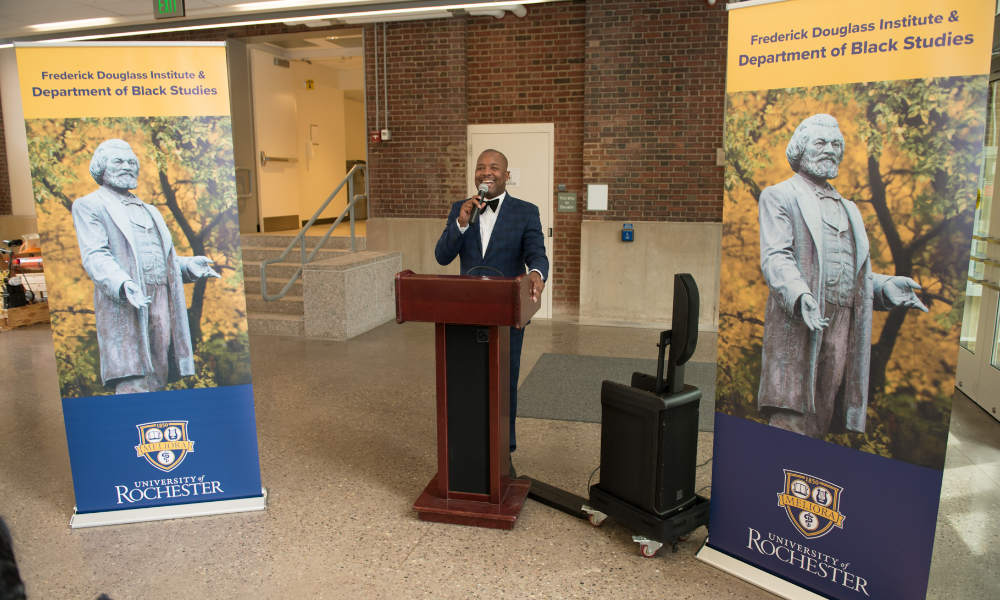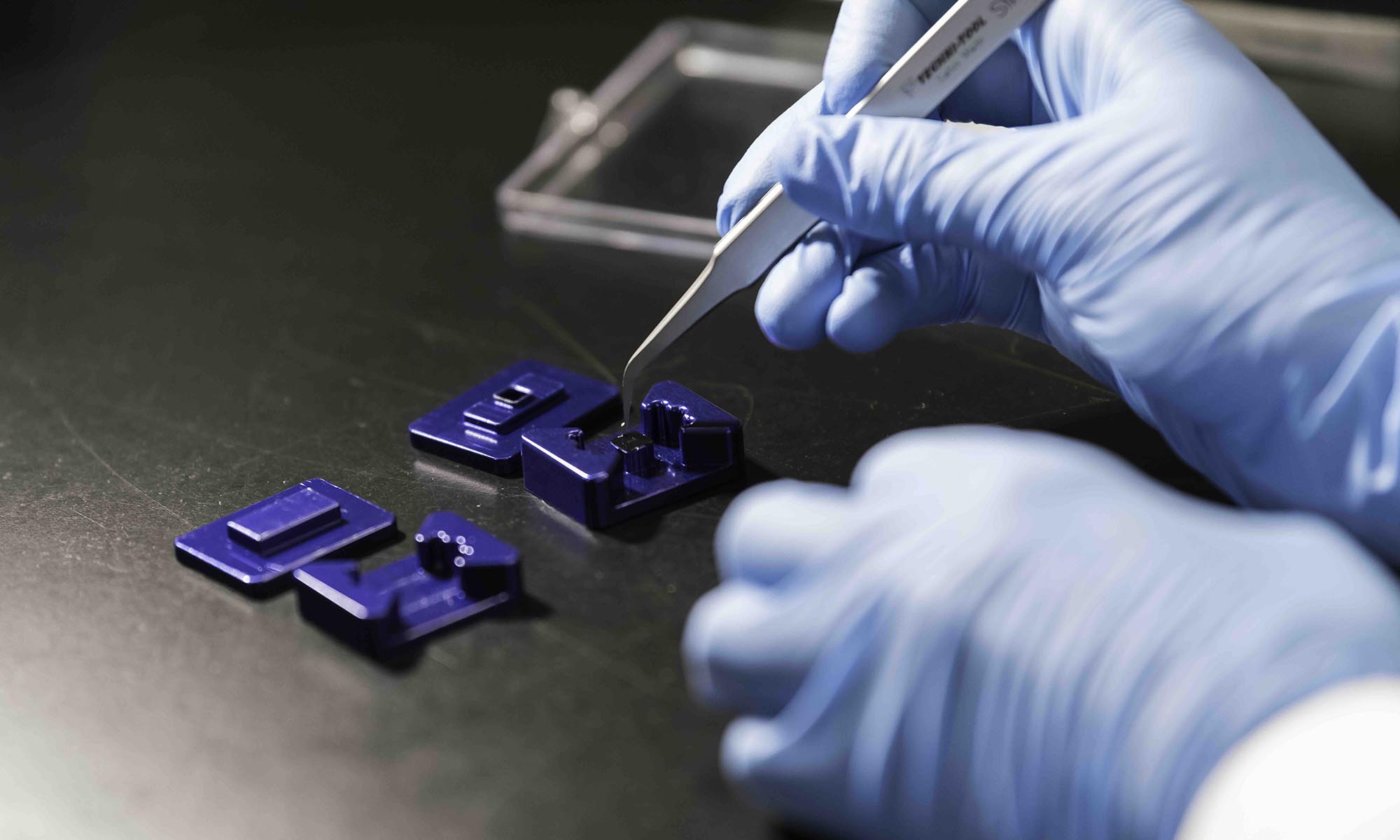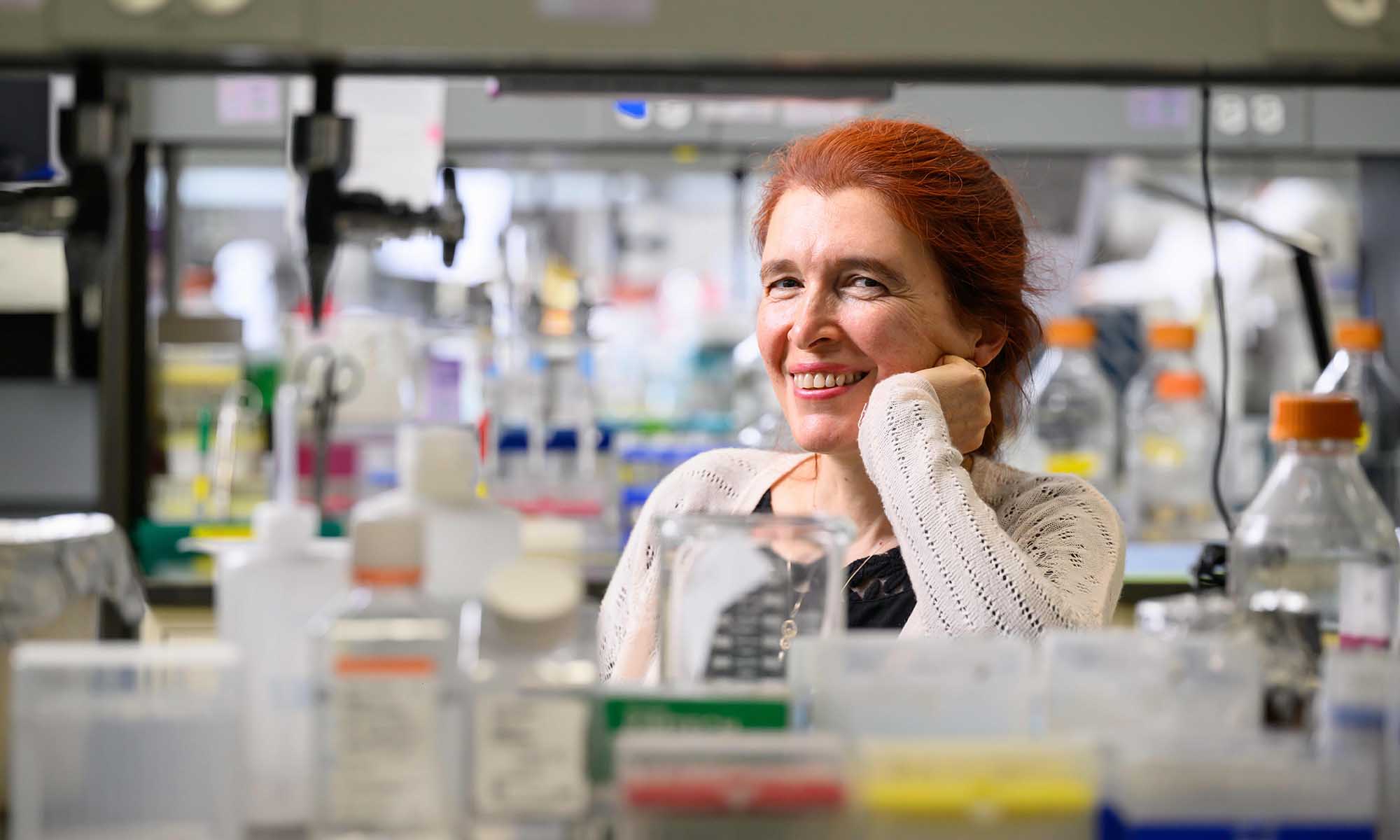President Sarah Mangelsdorf says Rochester embraces Black issues as subjects of academic study.
The University of Rochester’s Board of Trustees approved the creation of a Department of Black Studies in Arts, Sciences & Engineering. The new academic department will work in close collaboration with the University’s Frederick Douglass Institute for African and African-American Studies, which was established in 1986.
At the formal announcement during Meliora Weekend in October, University President Sarah Mangelsdorf said, “Today, the University of Rochester joins the community of institutions that embrace Black life, Black culture, and Black issues as very serious subjects of academic study. This is an important and necessary step as we work toward being a global research university of the future.”
Until now, the institute, which is part of the School of Arts & Sciences, incorporated faculty who had primary appointments in other departments. The Department of Black Studies, however, will be able to hire faculty fully committed to its mission. That will result in a greater focus on the study and research of issues central to the institute.
Jeffrey McCune Jr. is the institute’s director. “The study of Black people in the world is a major project encompassing geography, culture, political science, sociology, economics, and creativity,” he says. “All of that is robust and deserves to be studied seriously.”
At the official announcement, Provost and Chief Academic Officer David Figlio said, “The Department of Black Studies is a shining light of how we can be the best possible research university that we can be.”
Creating a Department of Black Studies was one of McCune’s primary goals when he came to the University last year. According to McCune, a dedicated department will be able to develop curriculum and programming in a way that will be best suited for students.
Joan Saab, vice provost of academic affairs, believes the benefits extend well beyond the department itself. “We know that Black studies doesn’t operate in a vacuum,” says Saab. “We have to forge ties to other entities, whether it’s the Susan B. Anthony Institute, or the Medical Center or the Memorial Art Gallery, or our colleagues at universities and colleges across the country. And I’m certain that we’re going to do that.”
The Frederick Douglass Institute was established nearly four decades ago in order to promote the development of African and African American studies in both undergraduate and graduate education, and to advance research in those areas.
Read more
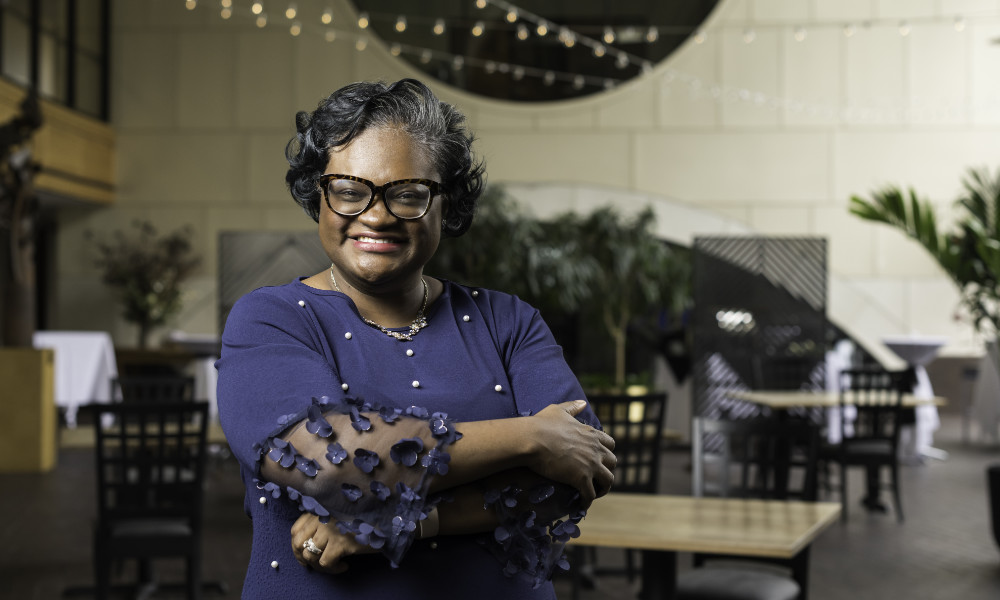 Music schools founded on the Western classical model face special challenges
Music schools founded on the Western classical model face special challenges
Crystal Sellers Battle articulates a path toward long-term cultural change at the Eastman School of Music.
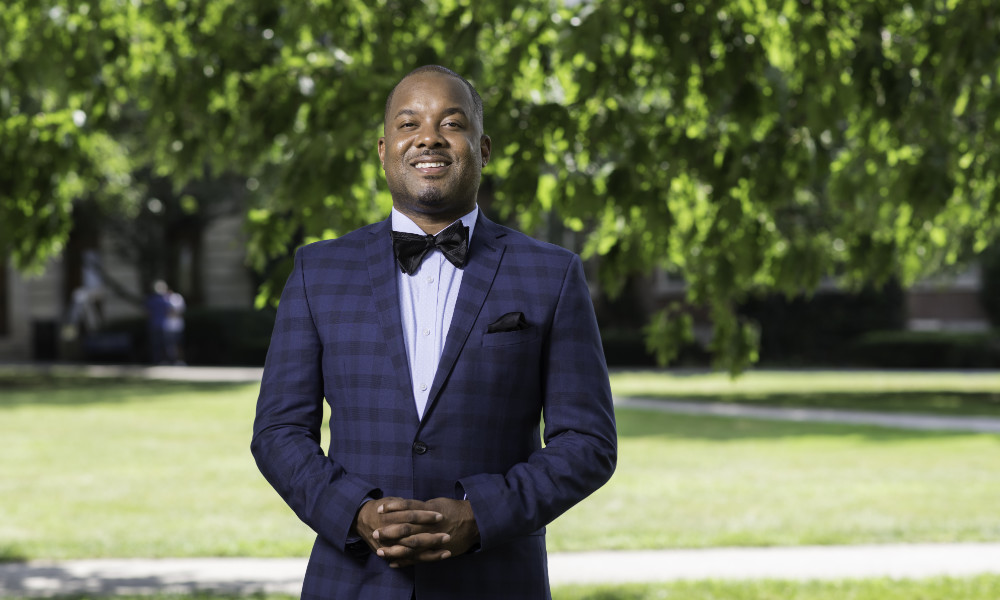 Jeffrey McCune Jr. returns to Rochester to lead Frederick Douglass Institute
Jeffrey McCune Jr. returns to Rochester to lead Frederick Douglass Institute
The accomplished scholar discusses the importance of Black studies as well as his plans to expand the scope of the institute at the University and in communities beyond campus.
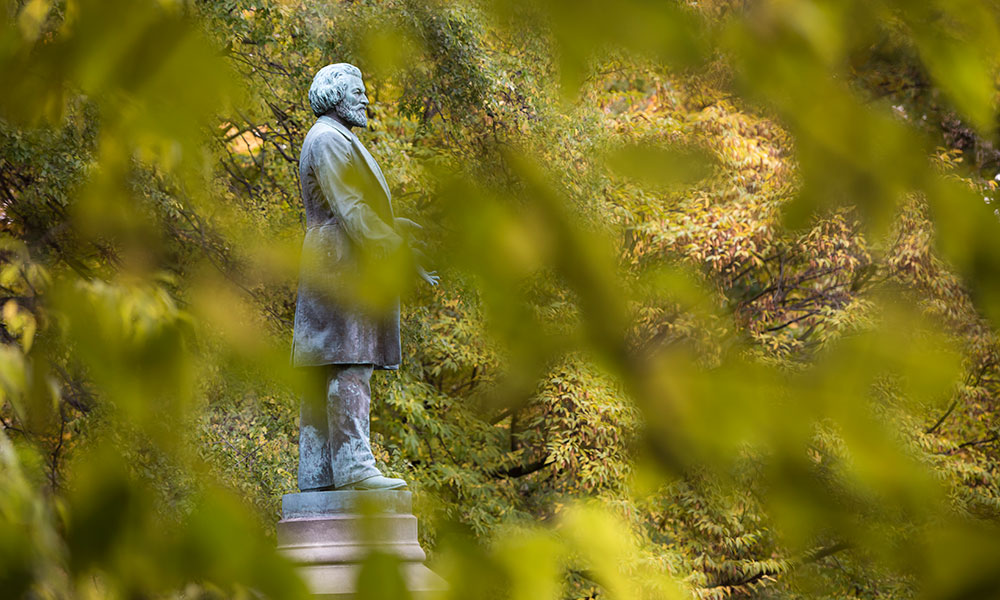 Rochester’s Black community had a deep—and underrecognized—influence on Frederick Douglass
Rochester’s Black community had a deep—and underrecognized—influence on Frederick Douglass
The region’s role in shaping the abolitionist leader has not been fully appreciated, according to history professor Larry Hudson.


